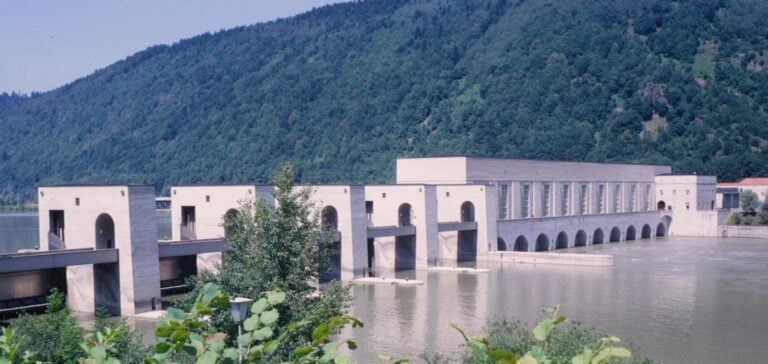Austria has achieved the feat of covering its entire domestic electricity demand with renewable energies. Thanks to the production of 4,801 GWh of green energy, the country not only met its domestic energy needs of 4,141 GWh, but also exported a surplus of 934 GWh. Compared with the 95 GWh exported in April 2023, this marks a significant increase, testifying to the impact of the expansion of renewable infrastructures. Hydroelectricity, wind power and solar energy have played a crucial role. Hydropower production reached 3,175 GWh, representing two-thirds of renewable energy production and an increase of 8% on the previous year. Wind power contributed 851 GWh, up 32%, while photovoltaic installations produced 580 GWh, more than double the 2023 figure.
Investments and infrastructure
To support this growth, APG (Austrian Power Grid) is investing 9 billion euros in electricity infrastructure between now and 2034. Gerhard Christiner, CTO of APG, emphasizes the importance of a robust electricity infrastructure, increased storage capacities and advanced digital intelligence in maximizing the use of renewable energies. These investments are designed to guarantee the energy transition while ensuring security of supply. Surplus renewable electricity enabled Austria to export energy on a daily basis in April. However, this success requires continued expansion of the electricity infrastructure, including storage facilities, to handle future growth rates in renewable energies. Legislation such as the Renewable Expansion Acceleration Act (EABG) and the new Electricity Industry Act (ELWG) are essential to support this development.
Redispatching challenges and measures
Despite progress, challenges remain. To avoid network overloads and guarantee a secure supply, redispatching measures are necessary. This involves the targeted and controlled use of thermal and hydroelectric power stations. Up to the end of April, these interventions were necessary for 52 days, generating costs of 19 million euros, borne by electricity consumers. Thomas Karall, APG’s CFO, stresses the importance of rapid network expansion to reduce these requirements and costs. APG’s trans-regional power grid facilitates the exchange of energy within the country. In April, wind-rich Lower Austria and water-rich Carinthia generated the largest surpluses, at 471 GWh and 324 GWh respectively, which were redistributed across Austria via the APG grid.
Energy consumption and responsibility
In April 2024,public electricity consumptionin Austria totaled 4,141 GWh, down 6% on April 2023. Promoting responsible electricity consumption is essential to reducing CO2 emissions and systemic costs. APG encourages citizens to save electricity, thus contributing to system security. The expansion of private photovoltaic installations, with 2,400 MW of new capacity connected by 2023, represents a positive trend. However, this poses new operational challenges, including massive returns of excess electricity to APG’s distribution network and a loss of transparency in local consumption data.
The challenges of digitalization and electricity prices
The complete digitization of the electricity system is necessary to achieve total transparency of consumption data and to adapt the network to the new energy realities. Midday consumption peaks are now replaced by regional electricity surpluses, altering the electricity price curve and even leading to negative market prices on sunny weekends with low demand. APG closely follows the development of the national electricity industry and regularly publishes charts on topics such as energy trading, energy consumption in Austria, renewable energy production, imports/exports and electricity prices. This information is essential for market players and consumers to understand the dynamics of the Austrian energy sector.
The growth of renewable energies in Austria demonstrates the country’s potential to become a leader in the energy transition. APG’s investments in network infrastructure and digitalization are crucial to supporting this transformation. However, challenges remain, including the management of electricity surpluses and the need for an appropriate legal framework to facilitate this transition. Cooperation between public and private players, as well as the commitment of citizens, will be decisive in achieving Austria’s climate and energy objectives.






















